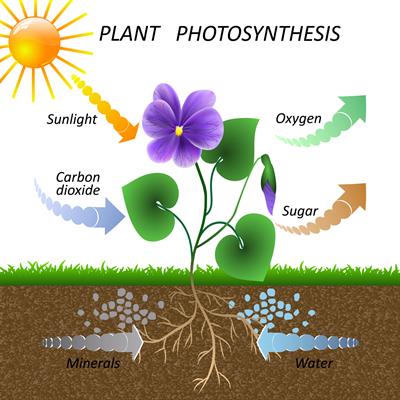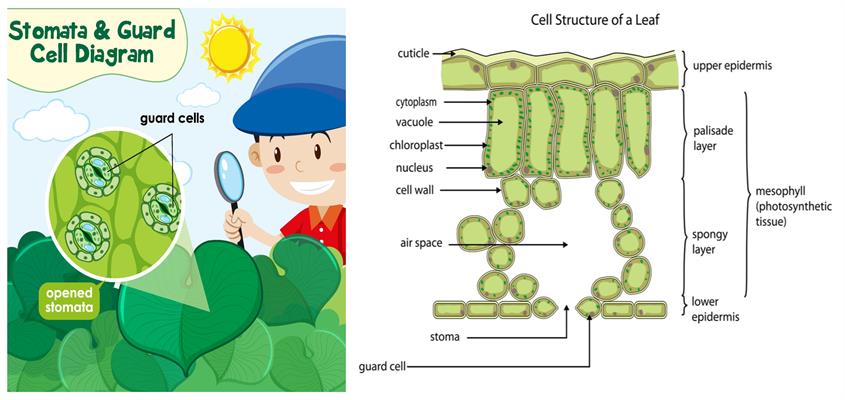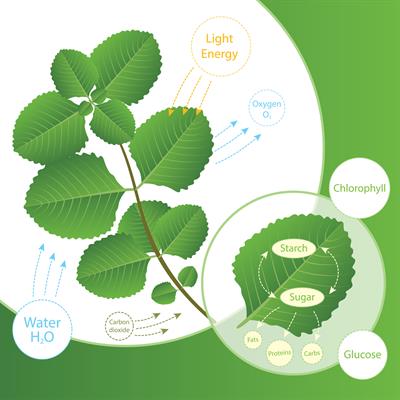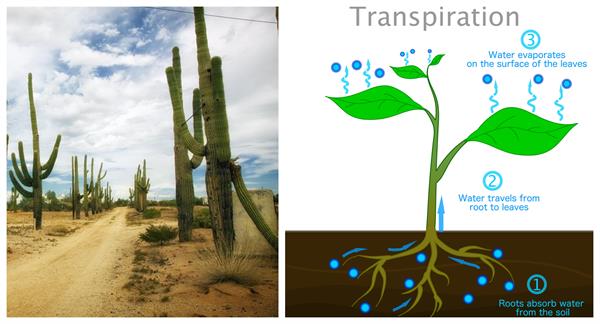PDF chapter test TRY NOW
Plants are self-sufficient in their food preparation. Naturally, we are forced to ask the following questions,
a. Where are the plant's food factories located?
b. What are the raw materials needed to prepare the food?
c. How the raw materials are obtained by the plants?
d. How are raw materials transported to the plant's food-producing regions?
e. What kind of nutrients does the plant get from the raw materials produced in food factories?
After learning the below topic, we can answer all the above-mentioned questions.
Plants get their nutrition by a process called photosynthesis.
Photosynthesis (photo: 'light' and synthesis: 'to combine') means producing food in the presence of sunlight, carbon dioxide, water, minerals and chlorophyll by plants.


Left to right: Stomata and Guard cell , Cell structure of a leaf
The following are the steps involved in the photosynthesis process:
- Plants take up carbon dioxide from the atmosphere through the tiny pores known as 'stomata present on the leaves' surface and surrounded by 'guard cells'.
- Plants absorb the water and minerals from the soil with deep penetrated roots inside the ground and transport them through vessels to the other parts of the plants, including the leaves, where the synthesis of food takes place.
- The green pigment present in the leaves known as chlorophyll helps the plant's leaves capture the sunlight that acts as the source of energy to carry out the process.
- Through the process of photosynthesis, oxygen is released into the atmosphere during the synthesis of food.
- At the end of the photosynthesis, the produced energy is stored in the form of starch.
Important!
Note:
- Released oxygen will be used for the respiration of animals, including humans.
- Vessels are tube-like structures that run throughout the roots, stem, branches and leaves. These vessels are like tunnels carrying the nutrients through a continuous passage to the leaves.

Process of photosynthesis
The process of photosynthesis
Important!
Info box:
- Most of the animals, including humans, depend on plants for their survival. And since plants require sunlight for their food production, we can say Sun is the ultimate source of energy for all living organisms.
- Photosynthesis isn't limited to leaves. It can also occur in green stems and branches.
- Desert plants, such as cactus, have adapted their leaves to form spines in order to minimise water loss by transpiration. These plants have green stems that can conduct photosynthesis.

Cactus plants in a desert region
Process of transpiration
Transpiration is the process by which the evaporation of excess water pass through the stomata of the plant's leaves.
